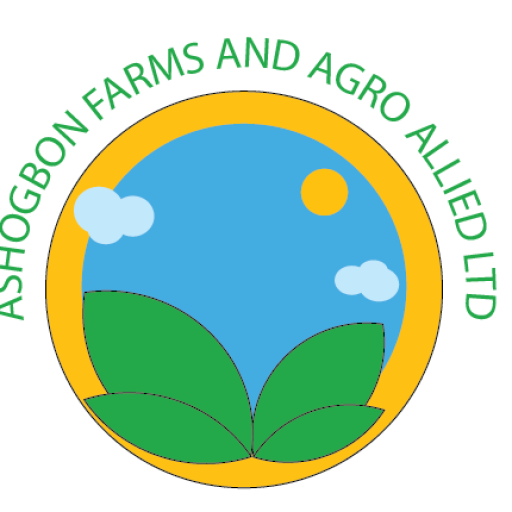+234 80 555 66677
support@ashogbonfarms.com
Ethics & Compliance
Ethical compliance is of utmost importance in the agricultural industry, particularly in farming and agro-allied services. It ensures that businesses operate in a responsible and sustainable manner while considering the well-being of animals, the environment, and the communities they serve. Here are some key aspects of ethical compliance we consider in Ashogbon Farms.
Animal Welfare
It is crucial to treat animals with respect and provide them with proper care. This involves ensuring access to clean water, nutritious food, appropriate shelter, and veterinary care. Avoiding practices that cause unnecessary harm or distress to animals is essential.
Environmental stewardship
Sustainable farming practices play a vital role in minimizing environmental impact. This includes using organic methods whenever possible, conserving water resources, reducing chemical pesticide and fertilizer use, implementing proper waste management strategies, and protecting biodiversity.
Fair labor practices
We strongly believe that Agricultural businesses should prioritize fair treatment of workers by providing safe working conditions and fair wages. This includes complying with labor laws and regulations, providing adequate training and protective equipment for workers, and respecting their rights to organize and bargain collectively.
Community engagement
Building positive relationships with local communities is essential for ethical compliance. This involves engaging in open and transparent communication, supporting community development initiatives, and contributing to the social and economic well-being of the communities in which the farm operates.
Traceability and transparency
Ethical compliance requires traceability throughout the supply chain. This means keeping accurate records of inputs, production processes, and product distribution to ensure accountability and prevent fraud. Transparency is also important in providing consumers with information about the origin, production methods, and environmental impact of agricultural products.
Compliance with laws and regulations
Adhering to local, national, and international laws and regulations is a fundamental aspect of ethical compliance. This includes obtaining necessary permits and licenses, adhering to environmental regulations, and complying with labor laws and regulations. It also involves paying taxes and fees as required by law.
Environmental Sustainability
Ethical compliance requires a commitment to environmental sustainability. This includes implementing practices that minimize the use of natural resources, reduce waste and pollution, and promote biodiversity. It also involves adopting sustainable farming methods such as organic farming, agroforestry, and water conservation techniques.
Continuous improvement
Ethical compliance is an ongoing process that requires continuous improvement. Farms should regularly assess their practices, identify areas for improvement, and implement changes to enhance ethical standards. This can involve seeking feedback from stakeholders, conducting audits or certifications, and participating in industry initiatives or programs.
Transparency and communication
Ethical compliance also involves being transparent and open about farm practices. This includes providing accurate and truthful information to consumers, stakeholders, and the public about how the farm operates, its environmental impact, and its commitment to ethical standards. It also involves engaging in open dialogue with stakeholders, listening to their concerns, and addressing them in a timely and respectful manner.
Social responsibility
Ethical compliance extends beyond the farm to the broader community. Farms should actively contribute to the well-being of the local community by supporting local businesses, creating employment opportunities, and participating in community development projects. They should also engage in fair trade practices, ensuring that workers throughout the supply chain are treated ethically and paid fair wages.
Consumer education
Ethical compliance involves educating consumers about the importance of ethical farming practices and their role in supporting these practices. Farms should provide information to consumers about their ethical initiatives, such as certifications and sustainable farming methods, through labeling and marketing materials. They should also educate consumers about the benefits of choosing ethically produced products, such as improved animal welfare, reduced environmental impact, and support for local communities. Consumer education can be done through various channels, including social media, website content, and partnerships with organizations promoting ethical farming.
Collaboration and knowledge sharing
Farms should actively collaborate with other industry stakeholders, such as researchers, government agencies, and non-profit organizations, to share knowledge and best practices in ethical farming. This collaboration can help farms stay updated on the latest research and innovations in sustainable agriculture, animal welfare, and worker safety. By sharing information and resources, farms can collectively work towards improving ethical standards in the industry.
Transparency and accountability
Farms should strive to be transparent about their practices, operations, and supply chains. They should provide clear information about where their products come from, how they are produced, and any certifications or labels they hold. This transparency allows consumers to make informed choices and holds farms accountable for their ethical commitments.
Employee empowerment
Ethical farming practices extend beyond just the treatment of animals and the environment; they also include fair treatment of farm workers. Farms should ensure that their employees are provided with fair wages, safe working conditions, and opportunities for growth and development. This can be achieved.
